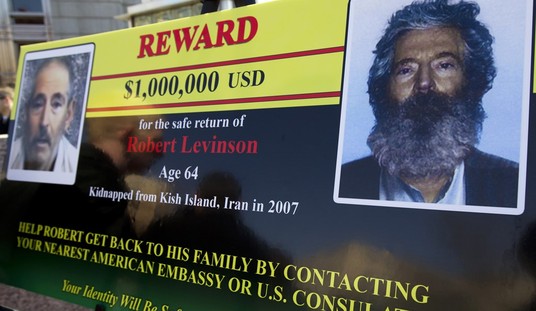For Orthodox on the New Calendar (meaning not on the Julian/”Old” Calendar)* and Catholics, yesterday marked the official commemoration of the Beheading of St. John the Baptist, also known as the Forerunner of Christ. As we face continued assaults on our religious freedom, I believe there is at least one important lesson we can learn from the story of his beheading. Here’s how the Gospel of Mark tells the story, in chapter 6, verses 14-30 (KJV):
14 And king Herod heard of him; (for his name was spread abroad:) and he said, That John the Baptist was risen from the dead, and therefore mighty works do shew forth themselves in him.
15 Others said, That it is Elias. And others said, That it is a prophet, or as one of the prophets.
16 But when Herod heard thereof, he said, It is John, whom I beheaded: he is risen from the dead.
17 For Herod himself had sent forth and laid hold upon John, and bound him in prison for Herodias’ sake, his brother Philip’s wife: for he had married her.
18 For John had said unto Herod, It is not lawful for thee to have thy brother’s wife.
19 Therefore Herodias had a quarrel against him, and would have killed him; but she could not:
20 For Herod feared John, knowing that he was a just man and an holy, and observed him; and when he heard him, he did many things, and heard him gladly.
21 And when a convenient day was come, that Herod on his birthday made a supper to his lords, high captains, and chief estates of Galilee;
22 And when the daughter of the said Herodias came in, and danced, and pleased Herod and them that sat with him, the king said unto the damsel, Ask of me whatsoever thou wilt, and I will give it thee.
23 And he sware unto her, Whatsoever thou shalt ask of me, I will give it thee, unto the half of my kingdom.
24 And she went forth, and said unto her mother, What shall I ask? And she said, The head of John the Baptist.
25 And she came in straightway with haste unto the king, and asked, saying, I will that thou give me by and by in a charger the head of John the Baptist.
26 And the king was exceeding sorry; yet for his oath’s sake, and for their sakes which sat with him, he would not reject her.
27 And immediately the king sent an executioner, and commanded his head to be brought: and he went and beheaded him in the prison,
28 And brought his head in a charger, and gave it to the damsel: and the damsel gave it to her mother.
29 And when his disciples heard of it, they came and took up his corpse, and laid it in a tomb.
30 And the apostles gathered themselves together unto Jesus, and told him all things, both what they had done, and what they had taught.
What we see in this passage are two very different responses to the conflict between God’s Law and the desires of man. John lived an austere life of solitude as he worshiped God and fulfilled his calling as Prophet and Forerunner of Christ, but the vain and debauched King Herod Antipas of Galilee and Perea and Tetrarch of Judea preferred the praise of men and earthly glory to the praise of God and the treasures of Heaven.
When Herod Antipas divorced his lawful wife Phasaelis without good cause to take to himself Herodias,the wife of his brother Herod II, John rebuked him, saying, “It is not lawful for thee to have thy brother’s wife.” Despite this and Herodias’ scheming, Herod Antipas would not execute John, because he had enjoyed listening to the Forerunner and feared the people’s response to executing a “just and holy man”.
However, upon the king’s birthday, Salome, Herodias’ daughter, performed a dance (that we can probably infer was a lewd one) for Herod and his men. Impressed by the dance, the king offered her whatever she wanted, including half of his kingdom. After consulting with her mother, Salome asked for the head of John the Baptist on a platter. While Herod was dismayed and upset, he did not want to break his oath and disappoint his guests, so he ordered it done.
While Herod Antipas valued his own selfish desires, earthly glory, and the oaths of men, John would not be cowed by the power and majesty of the king. Rather than hide the truth or attempt to water it down, the Baptist forcefully rebuked the King, and he would not deny this truth even unto his own death.
As Christians across the nation and world are being persecuted for exercising their freedom of religion, it is important to recognize how these two men reacted when faced with conflicts between God and man. Furthermore, with all the attempts lately to redefine marriage and family, we should remember John’s willingness to stand up for what is right–and the reason he rebuked the king. In America, we might not face death for acknowledging and speaking the Truth yet (and hopefully never will), but we cannot let the consequences of doing so deter us. We should speak the Truth with love and charity, but we should speak it nonetheless. The world is set against us, as it has always been. We cannot allow ourselves to become weak and fall prey to its temptations, as our real treasures should be saved up elsewhere.
As one who attends the Orthodox Church, I feel compelled to say, “St. John the Baptist and Forerunner, pray for us!”
*=For those on the Julian Calendar, the commemoration will be on September 11th of our Calendar.














Join the conversation as a VIP Member